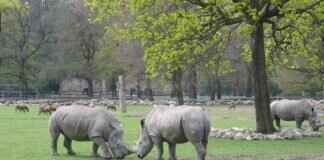On a sunny Sunday morning, a diverse group of over 30 citizens gathered in Delhi’s Dwarka Forest for a birdwatching walk. This event, organized by Greenpeace India and the Save Dwarka Forest campaign, aimed to shed light on the increasing impact of heatwaves on urban biodiversity and the crucial importance of preserving green spaces within the capital city.
Dwarka Forest, a 120-acre green oasis nestled near the Sahibi river and Najafgarh Lake route, has long been a sanctuary for hundreds of bird species, including migratory ones. However, the forest is currently facing threats of deforestation, encroachment, and waste dumping. Despite a partial stay by the Supreme Court in September 2024, environmental violations persist, endangering this vital urban lung that plays a pivotal role in buffering the city against pollution and extreme heat.
As participants meandered through the lush foliage, the chirping of birds and the rustling of leaves served as a stark reminder of the interconnectedness of all living beings. Ajay Joshi, an environmentalist and member of the Save Dwarka Forest campaign, expressed his gratitude towards Greenpeace for spearheading the fight to protect these essential ecosystems. In a rapidly warming city like Delhi, where temperatures often exceed 45°C, urban green spaces like Dwarka Forest serve as natural air-conditioners, offering respite to both humans and wildlife.
“The walk reminded us that we’re not the only citizens on this planet—there are so many other vital residents we often overlook. Protecting such spaces is not just about saving one species; it’s about the well-being of the entire planet,” Joshi remarked passionately. “As heatwaves and water scarcity continue to worsen, the preservation of these nearby ecosystems must be prioritized both in policy and in practice.”
Delhi Rising, a climate justice campaign led by Greenpeace India, is advocating for the recognition of heatwaves as a national disaster under the Disaster Management Act. Tanuja, a dedicated volunteer leader with Greenpeace India, emphasized the critical role that natural assets like Dwarka Forest play in safeguarding the environment, supporting wildlife, and fostering climate resilience. By protecting these precious resources today, we pave the way for a healthier and livable tomorrow for millions of individuals.
The birdwatching event, which served as a public engagement initiative under Delhi Rising, aimed to raise awareness about the urgent need for Heat Action Plans, protection for outdoor workers, and investments in natural and sustainable cooling infrastructure. By advocating for legal measures to safeguard the environment, forests, wetlands, and biodiversity, the campaign seeks to ensure clean air, water security, and climate resilience for all residents of Delhi NCR.
As the participants concluded their walk through the verdant forest, a sense of collective purpose and determination lingered in the air. Each step taken in the shade of towering trees and each bird observed in flight underscored the critical importance of protecting our natural surroundings. In a city grappling with rising temperatures and environmental degradation, initiatives like the Dwarka Birding Walk serve as poignant reminders of the power of community action in preserving our planet for future generations.














